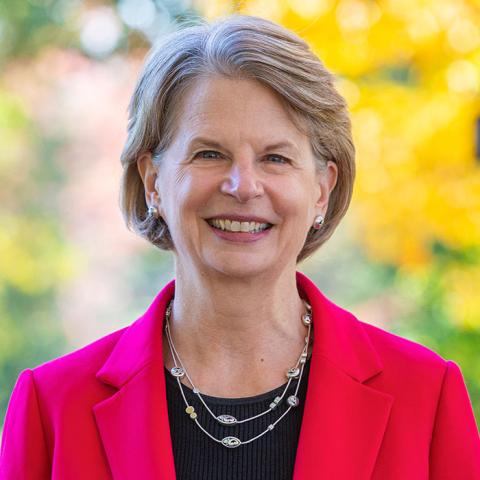Haverford President Robert Bocking Stevens, 1933-2021
Details
A message from Wendy Raymond
Dear Students, Faculty, and Staff:
I am saddened to let you know that Robert Bocking Stevens, who served as Haverford’s tenth president from 1978 to 1987 and helped guide the College through its transition to coeducation, died this morning in Oxford, England. He was 87, and had retired as a Master of Pembroke College, Oxford University, in 2001 following a lengthy career in higher education.
Stevens was born in Leicester, England, in 1933. He was educated at Keble College, Oxford University, where he received a bachelor of arts and an advanced degree in civil law. He was called to the bar by Gray’s Inn, one of London’s Inns of Court, but decided to go to the U.S. in 1956, to take a teaching position at the Northwestern University Law School. After getting a master of laws degree at Yale University, Stevens returned to England to become a law tutor at Keble College and launch a practice as a barrister. He was lured back to the U.S. in 1960 by Yale Law School, which offered him a position as an assistant professor.
During much of his 16-year tenure at Yale, Stevens served as a legal adviser to the Commission on East African Cooperation in Nairobi, and later advised a successor organization, helping to negotiate agreements between Kenya, Uganda, Tanzania, and their neighbors. It was at Yale that he taught his first course in legal history, which became the eventual focus of his scholarly research.
Stevens, who became a naturalized U.S. citizen, went on to serve as the provost of Tulane University for two and half years prior to being named Haverford’s president in 1978. Stevens took up the presidency at a challenging time in the College’s history. Finances were precarious, protests by students questioning the school’s commitment to diversity roiled the campus, and the debate over whether historically all-male Haverford should become a coed school had been dragging on for years.
Not long after his appointment, Stevens promised to thoroughly study the issue of coeducation: “My sense of the situation is that, this time, the question will be settled once and for all,” he said. He was as good as his word.
After surveying the feeling on campus in meetings with students and faculty, and after studying the potential effects for both Haverford and Bryn Mawr, Stevens persuaded reluctant members of the Board of Managers to give up their objections to coeducation. In May 1979, the College announced women would be admitted with the class of 1984.
Stevens was known as a vivid and witty public speaker who shifted easily from the erudite to personal, and worked to increase academic cooperation with Bryn Mawr, while helping the College move toward divestment in South Africa, which was completed in 1987. A federal law that denied financial aid to students who failed to register for the military draft inspired Stevens to commit the College to supporting students who refused to register as a matter of conscience by providing legal advice and alternative aid.
Stevens also tackled the College’s financial issues—which included an undersized endowment—by creating a long-range financial planning committee and presiding over a successful $20 million capital campaign launched with the College’s sesquicentennial. Under Stevens’ watch, Haverford enjoyed eight years of balanced budgets and saw the endowment increase dramatically. In 1987, Stevens announced his decision to leave Haverford for the University of California, Santa Cruz, to serve as chancellor.
Stevens was an expert in legal history and legal education in the United States and England. He wrote more than half a dozen books, including In Search of Justice (1968), Welfare Medicine in America (1974), Law Schools: Legal Education in America: 1850-1960, (1983) and The English Judges (2002). He is survived by his wife, Kathie, and three children. The obituary on the College website will be updated to provide information about memorial services as it becomes available.
With appreciation and in sadness,
Wendy




